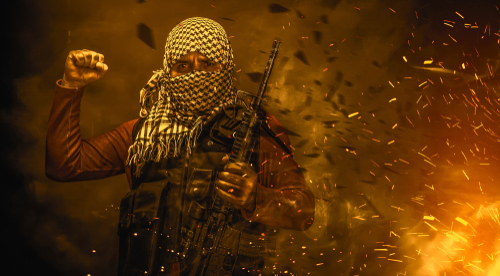In a horrific act of violence, approximately 200 Vodou practitioners were massacred by a powerful gang in Haiti’s capital, highlighting the ongoing crisis of gang violence and religious persecution in the country.
Vodou in Haiti: A Misunderstood Faith Under Threat
Vodou, a spiritual system deeply ingrained in Haitian culture, has long faced challenges ranging from misconceptions to outright persecution. Despite its official recognition in 2003, practitioners continue to face discrimination and violence. The recent massacre in Cité Soleil is a stark reminder of the dangers Vodou adherents face in a country grappling with widespread gang violence and instability.
A staggering two million people in Haiti face emergency levels of hunger as displacement continues to surge due to gang violence.@WFP is scaling up food assistance to address immense needs, reaching 50,000 people every day.https://t.co/5I2D5yLHQ5 pic.twitter.com/kIPkwwQ3DE
— United Nations (@UN) December 2, 2024
The tragedy in Haiti’s capital is not an isolated incident but part of a larger pattern of violence that has engulfed the nation. According to the United Nations, the death toll in Haiti this year alone has reached a staggering 5,000 people. This escalating violence has left over 360,000 Haitians homeless and nearly 2 million facing famine conditions.
Haiti: Voodoo attracting more believers as gang violence surge https://t.co/qY2oTLQFxn
— africanews (@africanews) May 10, 2024
The Cultural Significance of Vodou
Vodou is more than just a religion in Haiti; it is a fundamental part of its cultural identity and history. Originating as a response to the dehumanization of slavery, Vodou emphasizes human dignity and spiritual empowerment. It played a crucial role in Haiti’s revolutionary history, influencing various aspects of Haitian life, including music, art, and dance.
“Vodou is the response to that. Vodou says, ‘No, I’m not a cow. Cows cannot dance. Cows do not sing. Cows cannot become God. Not only am I a human being – I’m considerably more human than you. Watch me create divinity in this world you have given me that is so ugly and hard. Watch me become God in front of your eyes.'” – Ira Lowenthal.
Despite facing persecution, Vodou has shown remarkable resilience and adaptability. There has been a growing movement to increase its acceptance and integration into Haitian society in recent years. Intellectuals and cultural figures have contributed to raising awareness and dispelling myths about the religion.
Vodou as a Source of Strength Amid Crisis
As Haiti grapples with escalating gang violence and political instability, many are turning to Vodou for solace and protection. Vodou practitioners, known as “oungans” and “mambos,” are increasingly sought after for help with urgent issues, including locating kidnapped loved ones.
“Whenever the community has a big problem, they come here because Haiti has no justice. You find it in the ancestral spirits.” – Cecil Elien Isac.
The recent attack on Vodou practitioners in Cité Soleil, reportedly ordered by a gang leader who believed Vodou curses caused his son’s illness, highlights the complex interplay between superstition, violence, and religious persecution in Haiti. This tragic event underscores the urgent need for improved security measures and efforts to protect religious minorities in the country.
The Path Forward
As Haiti continues to struggle with gang violence and political instability, the protection of religious minorities, including Vodou practitioners, must be a priority. International aid efforts should focus on addressing immediate security concerns, promoting religious tolerance, and preserving Haiti’s rich cultural heritage. Vodou and its practitioners’ resilience in the face of adversity serves as a testament to the enduring spirit of the Haitian people.
Sources:
https://www.theguardian.com/world/2015/nov/07/vodou-haiti-endangered-faith-soul-of-haitian-people
https://www.theguardian.com/world/2024/dec/09/voodoo-haiti-massacre
Haiti: Voodoo attracting more believers as gang violence surge https://t.co/qY2oTLQFxn
— africanews (@africanews) May 10, 2024

